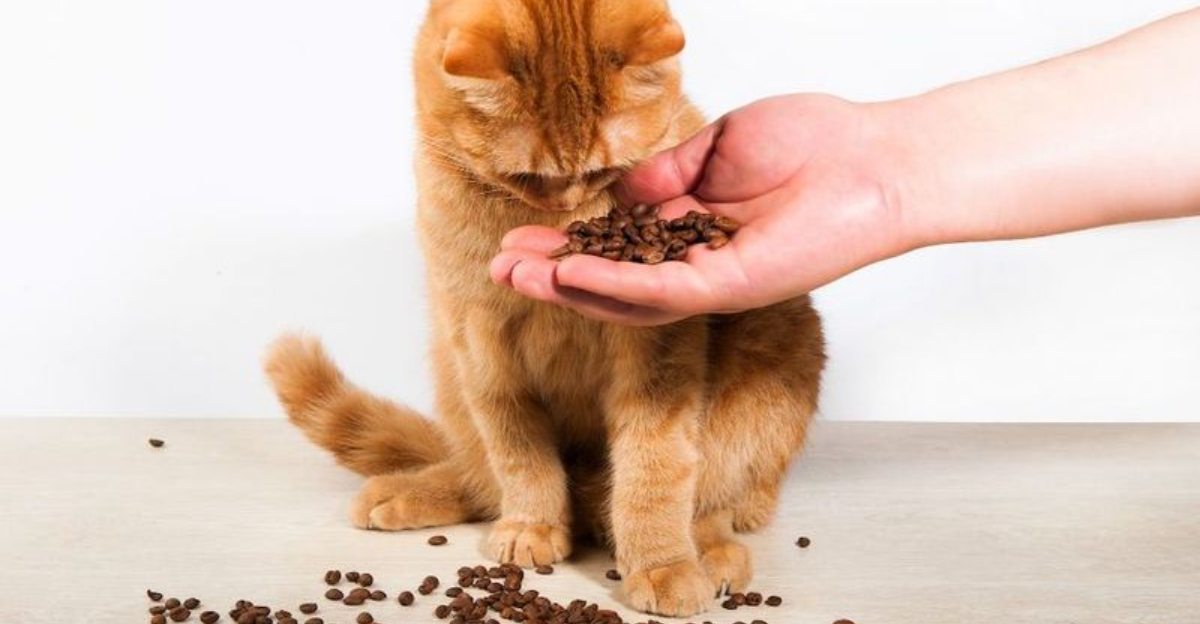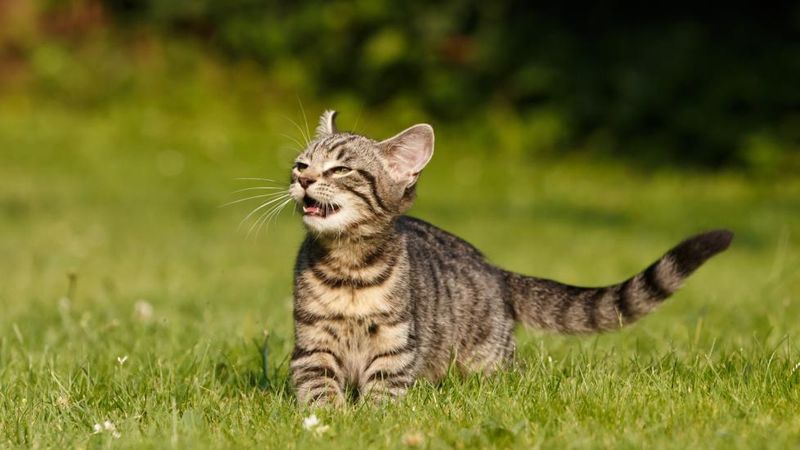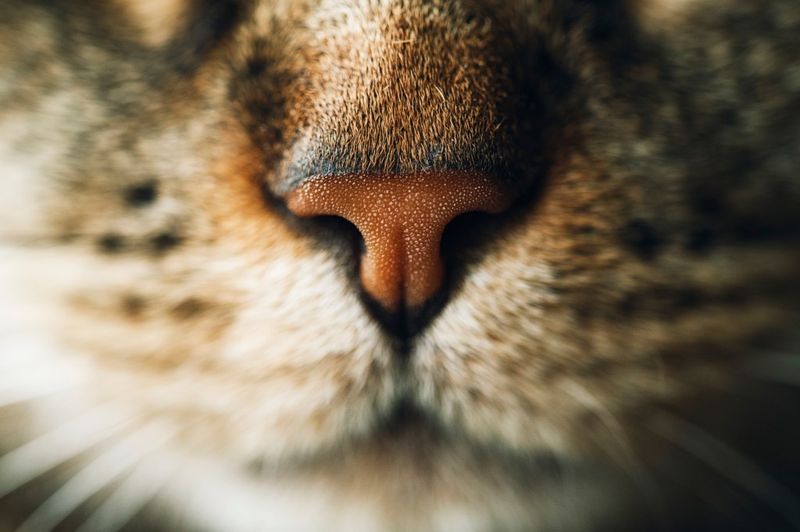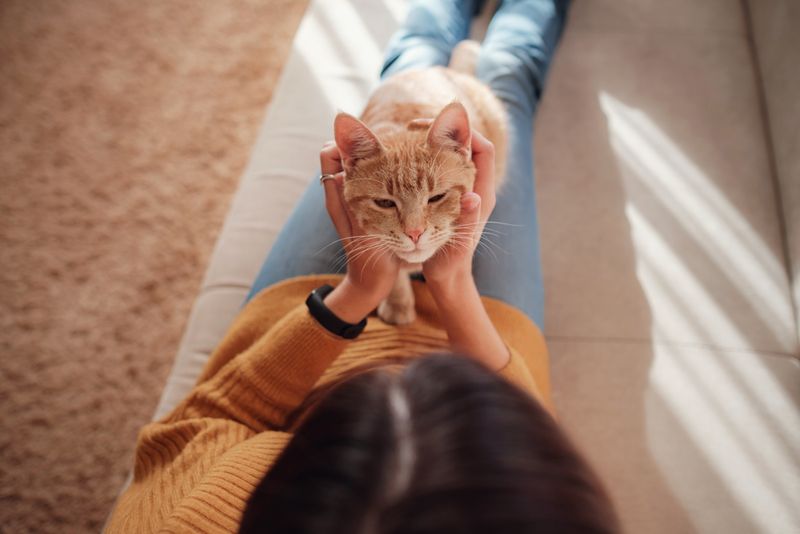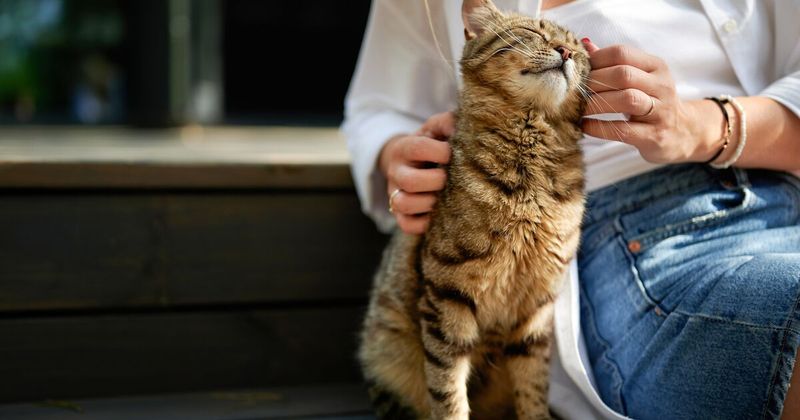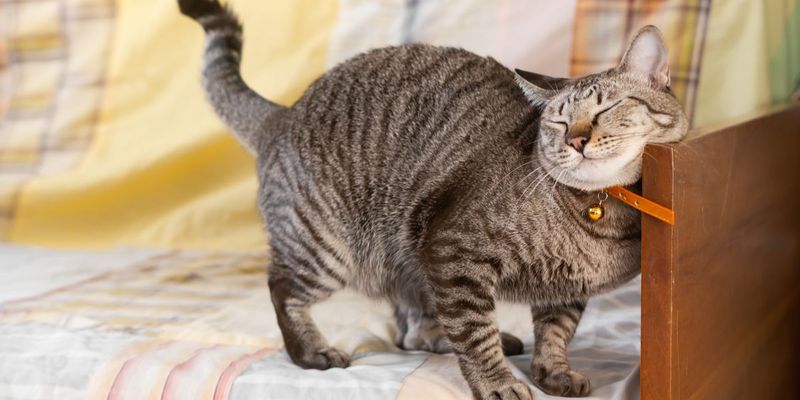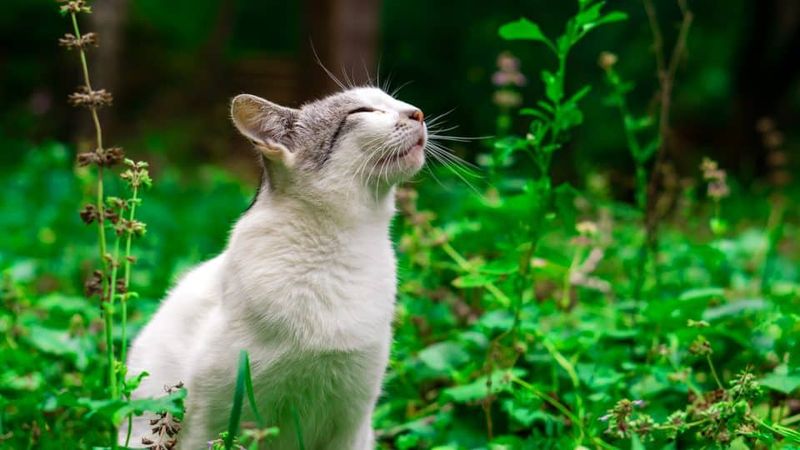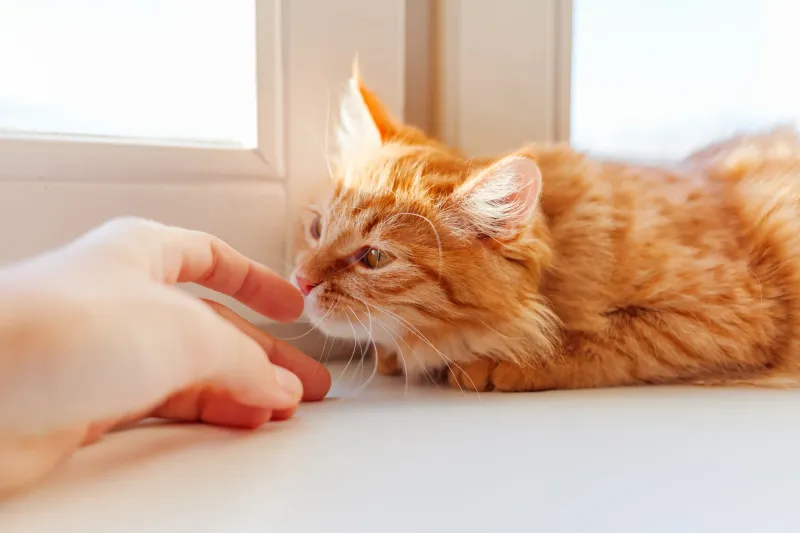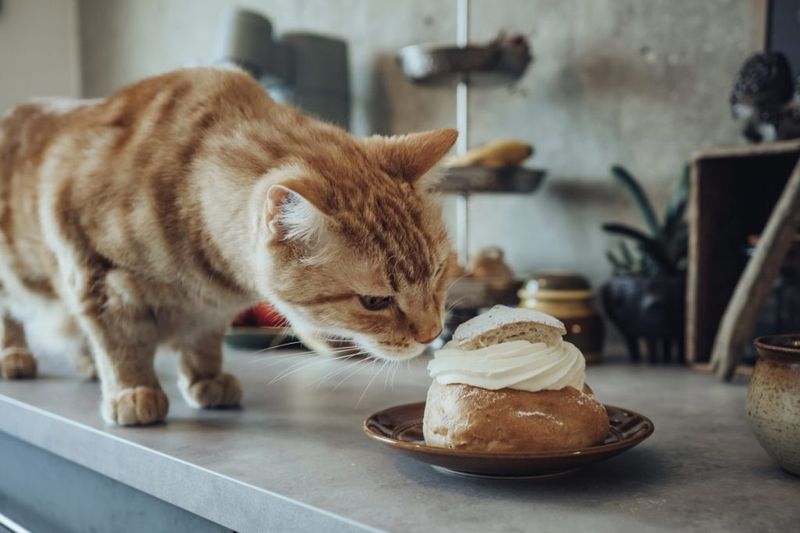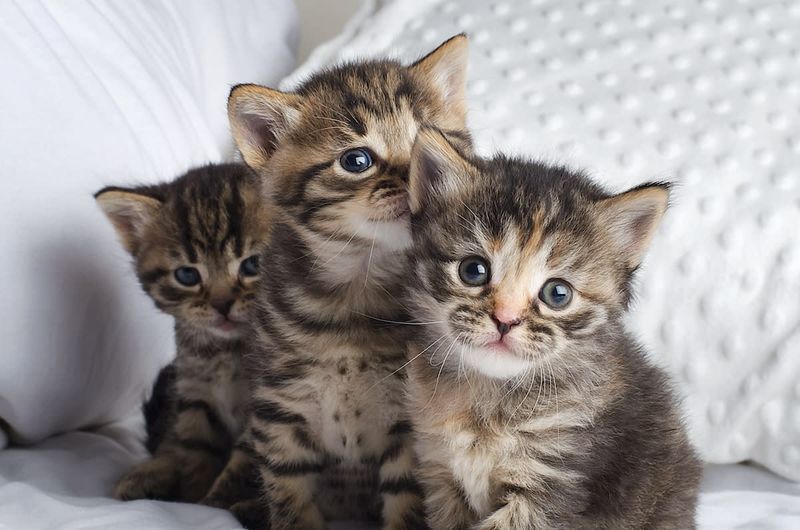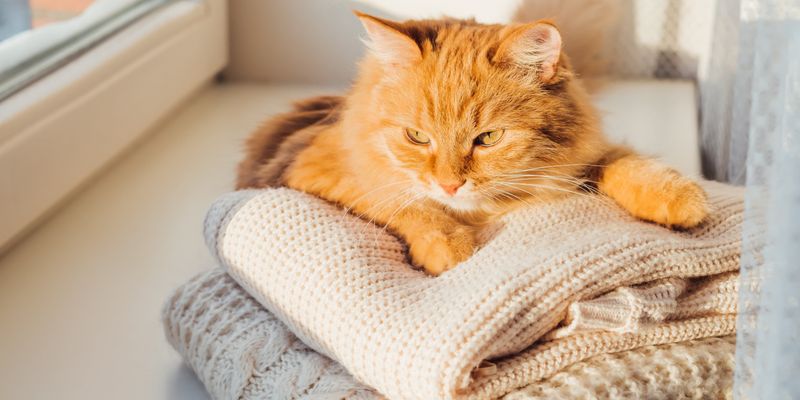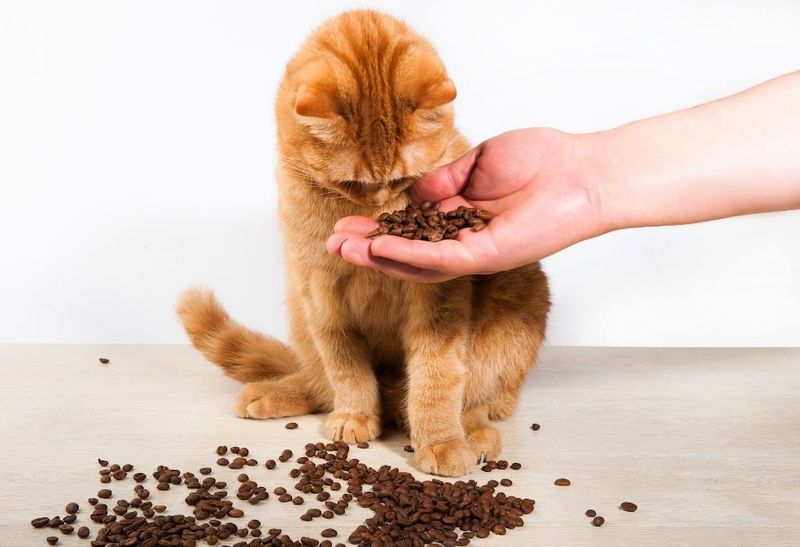📖 Table of Content:
- 1. Cats Smell With Their Mouths, Too
- 2. Their Sense of Smell Is 14 Times Stronger Than Yours
- 3. Scent Is How Cats Know Who You Are
- 4. They Can Smell Emotions
- 5. Cats Use Scent to Mark Territory — Not Just Pee
- 6. Scent Is a Key Social Tool for Cats
- 7. Cats Can Smell Prey Underground
- 8. They Use Scent to Detect Illness
- 9. Cats Sniff to “Read” the Room
- 10. Smell Helps Mother Cats Bond With Their Kittens
- 11. Your Scent Can Be a Comfort Object
- 12. Cats Dislike Certain Smells Intensely
When you think of a cat’s superpower, agility or night vision might come to mind. But hidden behind that adorable little nose lies one of the most sophisticated olfactory systems in the animal kingdom. While humans rely on sight and sound, cats explore and understand their world largely through scent.
From greeting you at the door to stalking invisible prey, your feline friend is constantly sniffing out information. Their nose isn’t just for breathing — it’s a finely tuned instrument designed to decode everything from territory boundaries to your emotional state. In fact, cats interpret scents in ways that can influence their behavior, social interactions, and even their health.
Whether you’re a seasoned cat parent or just fascinated by animal behavior, these 12 facts about your cat’s sense of smell will deepen your appreciation for how their mysterious world really works. Get ready to discover what your cat’s nose knows — and what it can teach us about them.
1. Cats Smell With Their Mouths, Too
At first glance, it might look like your cat is making a funny face — mouth open, lips curled, frozen mid-sniff. What you’re seeing is called the Flehmen response, and it means your cat is using a second scent-processing system. Hidden on the roof of the mouth is the vomeronasal organ, also known as Jacobson’s organ. This organ allows cats to “taste” scents and access deeper chemical cues that their nose alone can’t analyze. The behavior often appears when they’re smelling pheromones or unusual odors, like those from other animals. You might see it after they sniff shoes, bags, or other pets. It’s a quirky reminder that feline scent detection goes far beyond the average sniff.
2. Their Sense of Smell Is 14 Times Stronger Than Yours
Measured in scent receptors, the feline nose far outclasses the human one. While we make do with around 5 million, cats boast anywhere from 50 to 80 million — putting them in the same league as dogs. This enhanced olfactory ability allows them to track prey, detect subtle changes in the environment, and even sniff out intruders from a distance. Unlike humans, who rely heavily on visual cues, cats live in a scent-first world. Their brain devotes a large portion to processing smells, proving just how vital this sense is. In daily life, that means your cat’s nose is constantly working — even if you don’t notice it. It’s one of their primary tools for navigating, surviving, and thriving.
3. Scent Is How Cats Know Who You Are
Though your cat may respond to your voice or footsteps, scent is the true anchor of recognition. Each person has a unique smell signature, composed of skin oils, sweat, and even diet — and your cat knows yours intimately. When your cat rubs against your legs or snuggles in your laundry, it’s reinforcing this familiar scent connection. If you’ve ever returned from a trip and your cat seemed confused or standoffish, scent may be the culprit. Being exposed to new environments can temporarily change your odor. Cats notice this, sometimes needing a little time to re-associate the “new” smell with their beloved human. It’s one of the many ways scent governs feline relationships.
4. They Can Smell Emotions
It may sound far-fetched, but your emotional state can subtly change your body’s chemical output. Cats, with their highly sensitive noses, can pick up on these changes — especially those linked to stress hormones like cortisol. If you’re anxious, scared, or sad, your cat may sense something is off. Some cats react by cuddling more closely, while others keep their distance. Their response depends on their individual personality and the intensity of the emotion. Many owners report their cats seem more affectionate during difficult times. Though science is still unpacking this connection, there’s growing evidence that cats can smell how you feel — and respond accordingly.
5. Cats Use Scent to Mark Territory — Not Just Pee
You might associate territorial marking with urine, but cats have a whole arsenal of scent glands for the job. Located on their cheeks, chin, forehead, paws, and tail base, these glands allow them to “claim” objects, spaces, and even people. Every time your cat rubs their face against a table leg or headbutts your hand, they’re leaving behind a personalized scent stamp. It’s not just about claiming ownership — it’s also a way to create a comfort zone that smells like them. These invisible scent maps help reduce anxiety and establish routine. Even scratching surfaces contributes, as glands in their paws release scent alongside claw marks. To a cat, scent is a silent declaration of home and harmony.
6. Scent Is a Key Social Tool for Cats
Social interactions between cats often revolve around scent rather than sight or sound. When cats rub against each other, groom one another, or sleep in a pile, they’re not just bonding — they’re blending their scents. This creates a group “signature” that reassures them of safety and familiarity. In multi-cat households, shared scent helps reduce conflict and promotes social cohesion. Introducing a new cat without a scent-sharing process can lead to tension because the newcomer is seen (or rather, smelled) as a stranger. That’s why experts often suggest scent swapping — rubbing a towel on one cat and letting another sniff it. It’s an essential way cats build trust and group identity.
7. Cats Can Smell Prey Underground
Thanks to their powerful noses, cats can detect prey even when it’s hidden from view. They don’t need to see a mouse to know it’s nearby — just a whiff of scent from beneath the soil or floorboards can trigger hunting instincts. Outdoor cats often stare at seemingly empty patches of grass or paw at the base of sheds, guided only by scent cues. Their sense of smell helps them map out prey paths, burrows, and hiding spots. Even indoor cats “hunt” toy mice or laser dots after detecting the scent of food or previous play. This keen ability shows how much of a predator’s life is driven by olfaction. For cats, the hunt begins with a sniff.
8. They Use Scent to Detect Illness
Some cats appear to have a sixth sense about human health — and it might actually be their sense of smell at work. Illness can alter body chemistry in subtle ways that cats may pick up on. Anecdotal stories abound of cats persistently sniffing or lying on parts of their human’s body later diagnosed with illness. While research on cats is limited, similar phenomena are well-documented in dogs trained to detect cancer, seizures, or diabetes. Cats may also notice other pets’ illness and respond with increased grooming or avoidance. It’s a silent, scent-based communication that we’re only beginning to understand. And it just might save lives.
9. Cats Sniff to “Read” the Room
When entering a new space, a cat will almost always pause to sniff. This isn’t idle curiosity — it’s investigative work. Through scent, cats gather a complete picture of who’s been there, what happened, and whether the area feels safe. They can detect recent visitors, lingering odors from other animals, and even food that’s long gone. Their nose tells them what we can’t see. It’s like reading a newspaper full of invisible headlines. So when your cat sniffs your shoes or lingers by the front door, remember — they’re just catching up on the latest scent-based news.
10. Smell Helps Mother Cats Bond With Their Kittens
At birth, kittens are blind and deaf, but they can already smell their mother’s scent. This innate ability helps them locate her for warmth, food, and safety. The mother’s scent provides both comfort and identity, anchoring the kitten in its earliest days of life. As the kitten grows, scent continues to play a role in family bonding. Kittens also imprint on the scent of their littermates, which can influence future social behavior. A mother cat can recognize her own kittens by smell — even if they’ve been separated for a short time. In the feline world, smell comes before sight, sound, or touch.
11. Your Scent Can Be a Comfort Object
It’s no coincidence that your cat naps on your hoodie, pillow, or freshly worn socks. Your personal scent is deeply familiar and reassuring to your cat, acting like a security blanket in your absence. This behavior is especially common in cats with separation anxiety. Smelling your scent can lower stress hormones and help maintain a sense of connection. In shelters, clothing items from owners are sometimes placed in kennels to comfort anxious pets. Your scent tells your cat that you’re part of their safe space. Even when you’re away, your smell keeps them company.
12. Cats Dislike Certain Smells Intensely
Not all scents are welcome in the feline world. Strong odors like citrus, vinegar, menthol, and cleaning chemicals are overwhelming and often aversive to cats. Their powerful noses make them hypersensitive to smells that might seem mild to us. This is why certain natural oils or sprays can act as gentle deterrents for furniture scratching or garden digging. However, caution is needed — some essential oils and strong fragrances can actually be toxic to cats. Always check before using scent-based products around them. When it comes to smell, a cat’s nose can be both a gift and a vulnerability.
